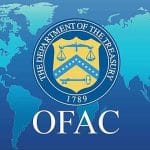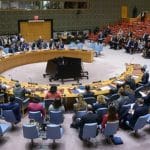On July 22, U.S. State Department Spokesperson Tammy Bruce announced that Washington had informed United Nations Educational, Scientific and Cultural Organization (UNESCO) Director-General Audrey Azoulay of its decision to withdraw from the organization, effective at the end of 2026. This will be the third UN agency Washington has decided to leave since U.S. President Donald Trump took office.
The brief official U.S. announcement explains the reasoning for the current withdrawal decision (full text below), takes aim at a wide swath of UN core activities and globally accepted policies such as the previously agreed Sustainable Development Goals (SDGs), setting up the reasonable expectation in New York that Trump will arrive for the General Assembly (UNGA) next September with a detachment of bulldozers, flamethrowers, and at the very least, an army of angry budget cutters. Apparently, in Trump’s Washington, “America First” means the UN is last, or close to the bottom.
Is the third time a charm?
The Trump administration’s withdrawal decision constitutes the third formal U.S. withdrawal from UNESCO and the second withdrawal decision authorized by Trump himself (the U.S. previously withdrew at the end of 2018). This all comes on top of the recent U.S. sanctions on ICC judges over their pro-Palestine decisions as well as sanctions against Francesca Albanese, the U.N. Special Rapporteur for the West Bank and Gaza.
Accordingly, Washington’s decisions have set the stage for an intense High Level Week at the start of the UN General Assembly session in September with Trump expected to address the organization and the world on the first day to lay out what his “America First” policy actually means for dwindling U.S. cooperation with, and funding for, the UN.
Few if any Americans noted the earlier Trump UNESCO decision, and the Biden administration reversed Trump’s withdrawal in 2023, as it did with so many of Trump’s previous foreign policy decisions, labelling it as a move designed to emphasize multilateralism and to reassert U.S. leadership in international institutions and to challenge Chinese influence in global technology and education standards.
A long and winding road
In point of fact, U.S. relations with UNESCO have been marked by multiple cycles of engagement, withdrawal, and reengagement since UNESCO was founded in 1945. At its launch and through the following decades, the U.S. provided significant funding and support for UNESCO’s education, science, and cultural initiatives, managing it as a valuable instrument for promoting democratic values and development during the Cold War.
The United States informed UNESCO Director-General Audrey Azoulay of our decision to withdraw from UNESCO. UNESCO works to advance divisive social and cultural causes and maintains an outsized focus on the UN sustainable development goals, a globalist ideological agenda for… pic.twitter.com/Cu9jEJU8We
— Department of State (@StateDept) July 22, 2025
The U.S. initially withdrew from UNESCO under former President Ronald Reagan in 1984, citing UNESCO’s politicization, a perception of anti-Western bias (not uncommon in the UN system) and increasing allegations of mismanagement and bureaucratic inefficiency, also not uncommon in the UN. In Washington, the withdrawal was seen as part of a broader conservative pushback against multilateralism, but the post–Cold War era shifted global dynamics, and the U.S. began reconsidering reengagement.
The U.S. rejoined UNESCO in 2003 under President George W. Bush, just two years after 9/11, citing improved management reforms as well as the need to support global education and promote counter-extremism through soft power. The U.S. resumed financial contributions, which made up roughly 22 percent of the UNESCO budget at the time.
However, Washington cut funding after UNESCO admitted Palestine as a member state in 2011, because U.S. law prohibits funding U.N. bodies that admit Palestine as a full member. Gradually UNESCO became a low visibility diplomatic backwater, located nonetheless in the gorgeous city of Paris, for most promotion-seeking American diplomats, and while the U.S. was still a member on paper, Washington became delinquent in dues, ultimately losing voting rights in 2013. This downward spiral set the stage for the first Trump decision, in 2017, on full withdrawal.
Text of U.S. press statement dated July 22, 2025:
The United States Withdraws from the United Nations Educational, Scientific and Cultural Organization (UNESCO)
Today, the United States informed Director-General Audrey Azoulay of the United States’ decision to withdraw from UNESCO. Continued involvement in UNESCO is not in the national interest of the United States.
UNESCO works to advance divisive social and cultural causes and maintains an outsized focus on the UN’s Sustainable Development Goals, a globalist, ideological agenda for international development at odds with our America First foreign policy. UNESCO’s decision to admit the “State of Palestine” as a Member State is highly problematic, contrary to U.S. policy, and contributed to the proliferation of anti-Israel rhetoric within the organization.
Continued U.S. participation in international organizations will focus on advancing American interests with clarity and conviction.
Pursuant to Article II(6) of the UNESCO Constitution, U.S. withdrawal will take effect on December 31, 2026. The United States will remain a full member of UNESCO until that time.








